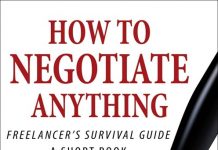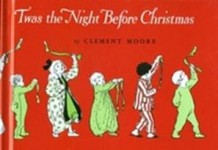 On the ‘Specialness’ of Books (Dear Author)
On the ‘Specialness’ of Books (Dear Author)
We’re all familiar with the assertion that books are “special,” and therefore deserving of different treatment than other commercial products. I used believe it myself. Until, that is, folks like Jon Sargent and Authors United started using it to justify crap like agency pricing and the shunning of Amazon.
***
If You Write Non-Fiction and Cannot Command Mega-Advances, You Should Consider Self-Pub (The Digital Reader)
The great majority of indie self-pubs are genre fiction, and a large proportion of nonfiction in self-pub is about how to write and sell genre fiction.
***
Print Book Retailing Economics and eBook Retailing Economics Have Almost Nothing in Common (Mike Shatzkin)
Since the economics of bookstores have been generally misunderstood for years, it is not surprising that the understanding of what changes make sense as we switch to digital have also been misunderstood.
***
Supreme Court to Rule on Facebook Threats and Amazon Worker Rights as New Term Starts (GigaOM)
What are the most important legal cases in tech? Here are three cases going before the Supreme Court this fall, plus a view of 5 other issues coming down the pike.
***
Kindle Daily Deal: Yellow Crocus (and others)

































Actually, books are special because they’re one of the most important ways that freedom of speech expresses itself. Two centuries ago governments regulated what was said by licensing books for sale. It wasn’t Orwell’s 1984. You could write what you wanted. The troubles came when you wanted to sell it.
That’s why messing with the marketing and sales does matter. An Amazon that openly restricts sales to bully a publisher is an Amazon that’ll find covert ways to limit the sale of some books to elect Candidate A rather than Candidate B. In that scenario, Candidate A has secretly promised not to do an anti-trust investigation of Amazon’s business practices.
Fussing about “agency pricing” as a great evil is particularly silly. Virtually everything else digital—music, video, and apps—are sold via agency pricing, even on Amazon. The creator sets the price and gets a fixed percentage. For digital, it makes perfect sense.
What’s being forgotten is that agency pricing of ebooks had a specific purpose. Amazon owned 90% of the ebook market and was selling popular ebooks well below cost to prevent any competitor from gaining a foothold in the market. That’s when Apple with its new iPad stepped in as the only viable major competitor. Agency pricing kept Amazon from destroying its competitor. And it has worked. Amazon’s share of the ebook market is now around 70%. Agency pricing means a more competitive market.
That’s why the DOJ went after agency pricing and did so after meeting with a Seattle law firm located a mere ten-minute walk away from Amazon’s corporate headquarters. You don’t think there is a connection there? And FYI, that law firm’s location is unusual. Most Seattle law firms are located downtown near the courts and not in Amazon-dominated South Lake Union.
What I’ve learned from all this is that writing as a profession is inflicted with many bitter, angry people—people who’re apparently unhappy their their artistic genius hasn’t be recognized by large publishers and that other writers get rich while they don’t. That’s why they rant and rave about the big publishers. It’s why they hate Authors United. Pitiful.
Even more pitiful are those who have no business sense. They can’t seem to think their way out of a wet paper sack in a hurricane.
Amazon already pays the lowest rates in ebook retailing. For ebooks priced outside the $2.99 to $9.99 that’s 35%—half what Apple pays and only 10% better than publishers who do a heck of a lot more for an author than Amazon.
Amazon has also leaked enough in various ways to reveal that it believes that the top-end royalties for authors should be in the 50% range. In fact, that’s precisely what it intends to pay authors in its new, crowd-sourced publishing arm. And keep in mind that that’s probably only if an author gives Amazon a five-year-exclusive.
These are your options:
1. Oppose Amazon and have a market where authors get 70% of retail, even while selling from a host of retailers. The price of cloud-based services is dropping rapidly, so I wouldn’t be surprised if a competitive market soon meant that creators get 80% of retail.
2. Support Amazon and face a future in which you get 50% of retail if you give Amazon the exclusive right to sell your ebook, but only 25-40% if you insist on selling elsewhere. And those numbers will never change because Amazon has no significant competition. As an author, you dance to Amazon’s tune or you go hungry.
Long term, those are your choices.
As a reader, I’m no great fan of some of these mega-authors. But I’ve got enough sense to know that they know the business side of writing far better than I. Only a fool wouldn’t listen to them.